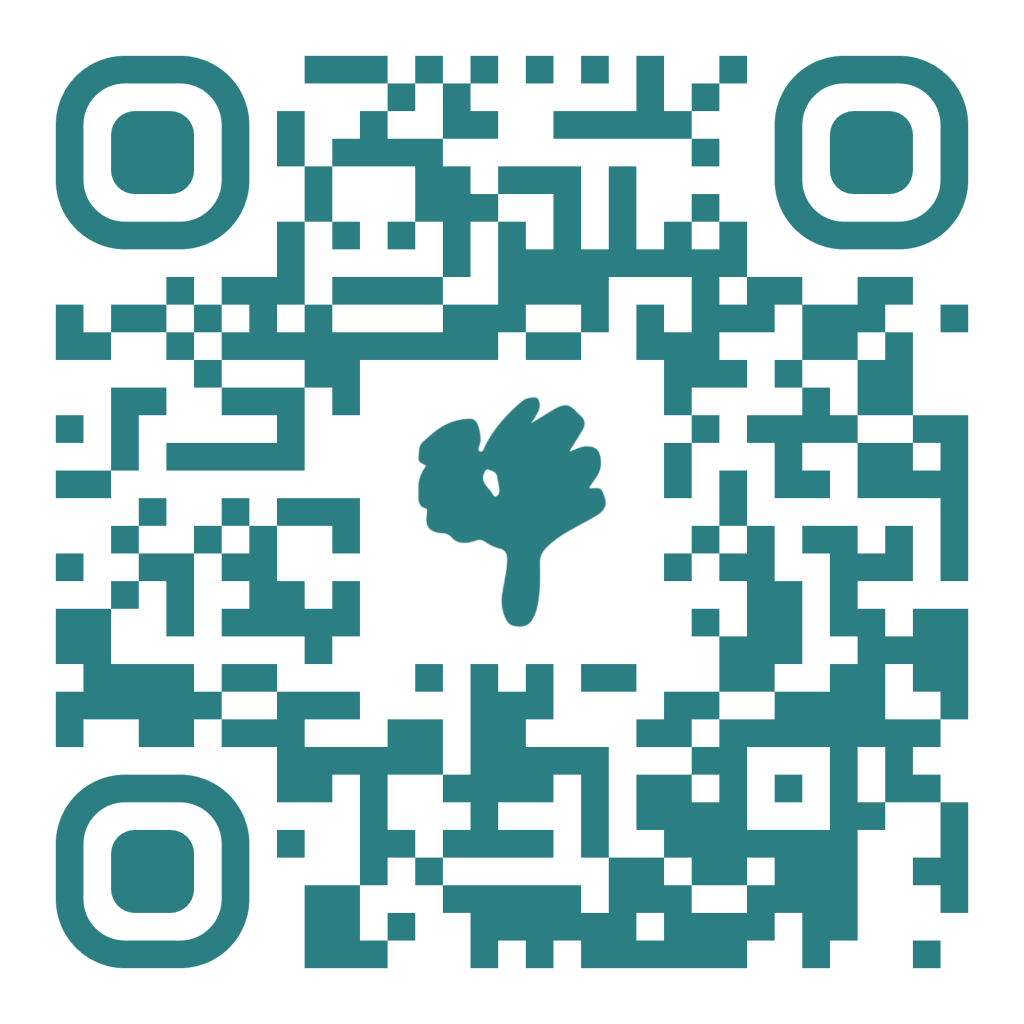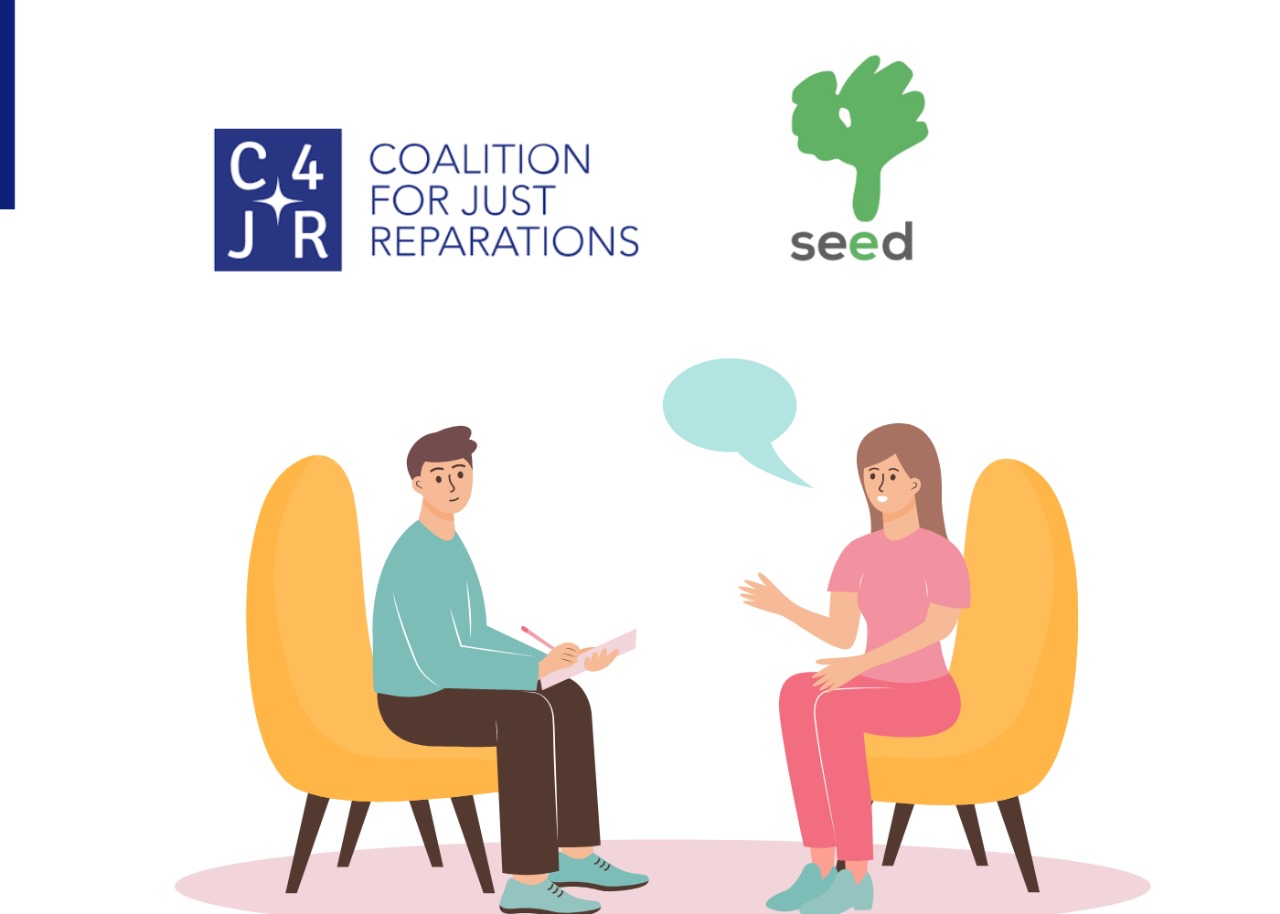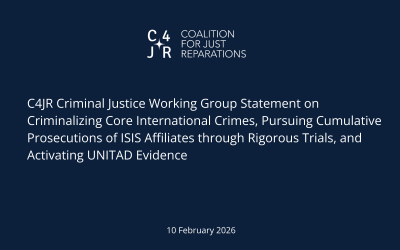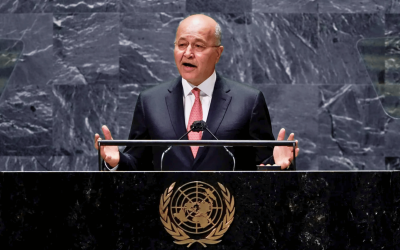ERBIL — SEED Foundation is a local NGO in the Kurdistan Region of Iraq that pairs urgent, life-saving interventions with long-term efforts to enhance institutional capacity and support systems strengthening in the region. In a recent interview with the Coalition for Just Reparations (C4JR), which SEED is an active member of, SEED’s Legal Coordinator, Shivan, and Policy and Advocacy Advisor, Kristin, discussed the organisation’s work to support survivors in accessing reparations under the Yazidi Survivors Law (YSL). They detailed the steps of a successful YSL application and the legal support required, SEED’s engagement in awareness raising and advocacy around the YSL, and the additional complementary services – including case management, MHPSS, and cash assistance – that SEED provides to survivors in need.
Setting out the steps of some of the successful YSL applications SEED has supported, Shivan explained the process undertaken by the organisation’s legal team. From providing comprehensive legal guidance, to initiating the application process for clients who seek support, including those unable to physically visit the General Directorate for Survivors’ Affairs (GDSA) in Nineveh, to filling out physical and online application forms and aiding in document submission, SEED’s support is holistic. Kristin also shed light on the referral pathways to SEED’s legal services, underscoring the significance of both internal and external referrals, which often stem from existing client relationships or coordination fora, respectively.
YSL applications are processed once the GDSA receives the application online or in person following an appointment scheduled online by the applicant. If all required documents are submitted with the application, including the investigation paperwork, the GDSA will send the application to the YSL Committee. The latter is obliged by the YSL to make a decision within 90 days. The application will be put on hold by the GDSA if the applicant does not have the required investigation paperwork, which needs to be issued by an investigation court in Iraq. Once an application is accepted, the applicant will be informed and the GDSA will provide the survivor with a QiCard and monthly salary in addition to other available services and benefits promised under the law. If rejected, the applicant will be verbally informed of the decision. S/he will have 30 days after the notification date to appeal the decision before the YSL Committee. In the case of a second rejection, applicants can appeal to the Court of First Instance, whose decision is final.
While there is no substantive difference in applying online or offline, applications submitted via the online portal are given a unique registration code that facilitates follow-up and tracking. It is always good to monitor the status of an application, whether by a lawyer or the survivor. If an application is rejected, applicants will need to obtain a copy of the decision and understand the reasons in order to draft a strong appeal. Retaining the services of a lawyer is recommended.
Some of SEED’s clients are currently awaiting a response from the decision-making Committee established under Article 10 of the YSL. In another case referred to SEED, the client had applied independently, but received a rejection from the Committee. SEED offered legal counselling on the process of appealing the Committee’s decision at the Court of First Instance. Subsequently, the client secured a favourable court decision, enabling her to receive her entitled monthly salary.
The time it takes to build a case and support the applicant through the process can vary considerably based on the specifics of the case, the precise needs of the survivor, and the stage at which the survivor seeks support. SEED often has to address essential needs (such as procuring civil or identity documentation) before helping the survivor gather supporting evidence, file a criminal complaint for investigation paperwork, or prepare the application itself. It also depends on whether the survivor needs legal counselling, representation, or other support. As a general rule, SEED’s experience with supporting the submission of YSL applications, from the beginning to the end of the process, has taken around three months (this does not include the processing period or receipt of decision, which can take 90 days if everything is received or longer if the application is placed on hold by the GDSA due to missing documents). In contrast, in instances where a survivor already has all required documents, paperwork, and evidence needed to file their application, the process of preparing and submitting the application can be completed within 1-2 days.
The legal services needed by survivors throughout the application and appeal process can vary considerably. To gather any required supporting documents or prepare and submit their YSL applications, survivors may need comprehensive legal advice on the YSL eligibility criteria, the application process (online and in person), the required documents, the relevant decision-making bodies, and the appeal process. Survivors may also require legal representation by a lawyer to file a complaint against ISIL in a federal investigation court and receive their required investigation paperwork. Practice has shown the importance of clients providing precise accounts to substantiate their experience of kidnapping or sexual exploitation in accordance with legal criteria, so survivors may benefit from legal assistance in filling out the application form to ensure it captures all the requirements in the YSL. Survivors may also need to retain legal advice to help them procure a written copy of the decision if their application is rejected, as applicants are typically informed of the decision verbally. In such a case, survivors may need legal representation for the appeal process and a carefully drafted appeal, particularly to the Court of First Instance, as that represents her/his last chance to get YSL benefits.
In addition, while survivors who are not in Iraq may apply online or via a lawyer, the process of filing a criminal complaint at the investigation court requires the complainant. Applicants abroad should soon be able to file a complaint and deliver their testimonies via teleconference, but it is not clear whether any such cases have yet been processed.
The process of supporting survivors in filing successful applications, as outlined by Shivan and Kristin, underscores the crucial role of legal services in navigating the various steps of applying for benefits under the YSL. From offering legal advice on eligibility criteria to providing representation in federal investigation courts, where needed, legal assistance is highly advised to survivors seeking to apply for the YSL. Furthermore, the role played by SEED and other legal organisations in aiding applicants with the appeal process demonstrates the importance of understanding the system.
By leveraging a multi-pronged approach to supporting the implementation of the YSL and addressing challenges, SEED aims to ensure that survivors receive the care and support they deserve. Clients can access the services through in-person referrals at the SEED centres, or through SEED’s referral phone line, email address, and referral page – accessible via the following QR code:

In tandem with legal support, SEED’s holistic approach extends to providing a full package of services to clients in need. Through coordination between legal and case management services, SEED ensures that survivors’ needs are addressed comprehensively. The integration of MHPSS services and cash assistance, where needed to support applicants who may need to return to areas of origin to manage various steps of the application process, demonstrates SEED’s proactive stance in supporting survivors’ journey towards healing and justice.
Under the MHPSS referral system established by the GDSA and IOM Iraq, SEED is a provider of psychological support services, playing a key role in facilitating survivors’ access to critical psychological support services, which is one of the promised reparations measures under the YSL.
SEED’s commitment to community outreach and awareness-raising initiatives also illustrates its dedication to empowering survivors. Through regular awareness sessions, direct engagement with survivor communities, and the provision of informational materials, SEED disseminates information about the YSL, bridging crucial information gaps. These awareness sessions focus on disseminating accurate information about the YSL application process, documentation requirements, and eligibility criteria within survivor communities, and can serve as an additional platform for connecting survivors to legal support. In-person awareness-raising is vital due to significant gaps in governmental outreach and the fact that online resources are not equitably accessible to all eligible survivor groups, particularly those in displacement. Once information is disseminated within survivor communities, it facilitates rapid knowledge transfer within communities. Direct engagement also provides the opportunity to develop additional awareness resources in response to questions and identified needs. For example, in response to survivor reports of extortion at the hands of opportunistic individuals offering to assist them with the application process, and requests from survivors for more information on how to protect themselves from fraud and electronic extortion, SEED developed a set of key messages on this topic that have been integrated into awareness sessions and will be released shortly as a pocket guide in three languages.
To complement direct engagement with survivors, SEED also engages in public campaigns over its website and social media accounts and is currently in the process of adapting many of its outreach materials, which were originally designed for use in awareness sessions, into more accessible and easily shareable content that can be easily circulated within and between communities by WhatsApp, and so on. However, the inherent limitations of NGO outreach also highlights the need for expanded informational programs to ensure equitable access to information and support.
As a key member of the Coordinating Committee for C4JR, SEED is heavily involved in informing, shaping, and supporting C4JR’s expansive portfolio of advocacy on the YSL. SEED also co-chairs or participates in multiple C4JR Working Groups to allow the organisation to engage in as many meaningful aspects of this work as possible and leverage its expertise to inform policy development and drive systemic change.
Through concerted advocacy efforts, both in partnership with C4JR and independently, SEED works to address systemic barriers and promote survivor-centric approaches to reparations. SEED’s advocacy efforts have extended beyond grassroots engagement, encompassing high-level advocacy initiatives aimed at pressing for the adaptation and adoption of the YSL, informing the development of its bylaws, and strengthening implementation. Over the past year and a half since the application portal was launched, SEED has worked on numerous advocacy initiatives designed to increase accountability through public monitoring, enhance survivor access through stronger outreach, address and/or mitigate key barriers to reparations, ensure sustainability of the reparations program through proper resourcing, and support effective and consistent implementation of the program by increasing coordination among key actors and stakeholders.
However, challenges persist. The necessity of procuring investigation paperwork, particularly for survivors hesitant to return to their place of origin, has posed a significant hurdle. The reasons for hesitation among survivors often include concerns about safety and security, potential re-traumatisation in police stations and national card offices, and lack of financial support. Advocacy efforts, in collaboration with governmental bodies and legal institutions, have sought to alleviate such barriers and ease the process of filing a criminal complaint. Following concerted advocacy with key stakeholders, all federal investigation courts have been directed to receive complaints for the YSL cases regardless of geographic authorization. Additionally, survivors should no longer have to visit the police stations as part of this process.
Furthermore, the absence of written rejection decisions from the Committee underscores the need for procedural clarity and transparency. While it is standard practice under the YSL to inform applicants of rejection decisions verbally, providing a written copy of the decision could be a considerable benefit to survivors in supporting the development of strong, timely appeals. Survivors can request a copy of the written decision from the GDSA. Significant progress has been made in supporting survivors, but there is still more to do.



